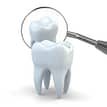Why Your Dentist Needs To Know About Your Medications

Did you know that there are medications that affect teeth and your overall oral health, causing dry mouth, change the way you taste food, and affect your gums?
For this very reason, it’s important that you tell your dentist and dental hygienist about the type of medication you’re taking, how much you’re taking and how often you take them. This includes any vitamins, minerals, herbs and other supplements that you’re currently taking, and not just prescription medicine.
There are five reasons why your dentist needs to know about any medication you’re currently taking, and these are:
1. Having a dry mouth can increase your risk for getting cavities, gum disease, mouth sores, infections and most notably, bad breath. As such, it’s understandable that you want to tell your dentist about it so they can help you. But, during your visit, you’ll definitely want to tell your dentist first about any medication you’re taking. That is, if they don’t already ask you. The reason for this is that there are certain types of medication that can cause or contribute to a dry mouth. In particular, medication for high blood pressure, depression, anxiety, cold and allergies are known for this.
2. There are also certain types of medication that can make you bruise and bleed more easily. Examples include aspirin, ibuprofen, garlic, gingko biloba, ginger and ginseng. If you frequently take such medication, be sure to tell your dentist about it.
3. Be careful about eating hard candies, breath mints and taking cough drops frequently, as they often have a high sugar content and increase your risk for cavities. If you can’t avoid them entirely, try switching to sugarless alternatives instead. Also, certain drugs can leave a bad aftertaste in your mouth, as well as make certain types of food taste bad or bland. If you’ve noticed your sense of taste changing after taking something, avoid using too much salt or sugar to make food taste better. Doing so can only lead to even worse problems down the line, including cavities, high blood pressure and so on. Instead, tell your primary care physician or dentist as soon as you notice the changes so you can ask to have your medication changed if necessary.
4. Mouth ulcers are also known to be a possible side effect of certain types of medication. These sores, usually found on your cheeks or under or along the side of the tongue, can be extremely painful and make eating and speaking very difficult. Be sure to let your primary care physician know as soon as you notice mouth ulcers in your mouth so they can find out the exact cause and if necessary, change your medicine.
5. Lastly, the pain relievers, sedatives, anesthetics and other types of medicines given in the dental office can cause drug interactions with other types of medication, which can sometimes prove dangerous. You can prevent such complications by being honest and talking to your dentist about the medication you’re currently taking.
It’s important that you have a complete list of any medication that you’re taking for your dentist to check for and address any possible negative side effects immediately.
For more information on your oral care and any medications you are taking call Dr. Farless today at 336-282-2868. Visit our website at www.gsodentist.com.